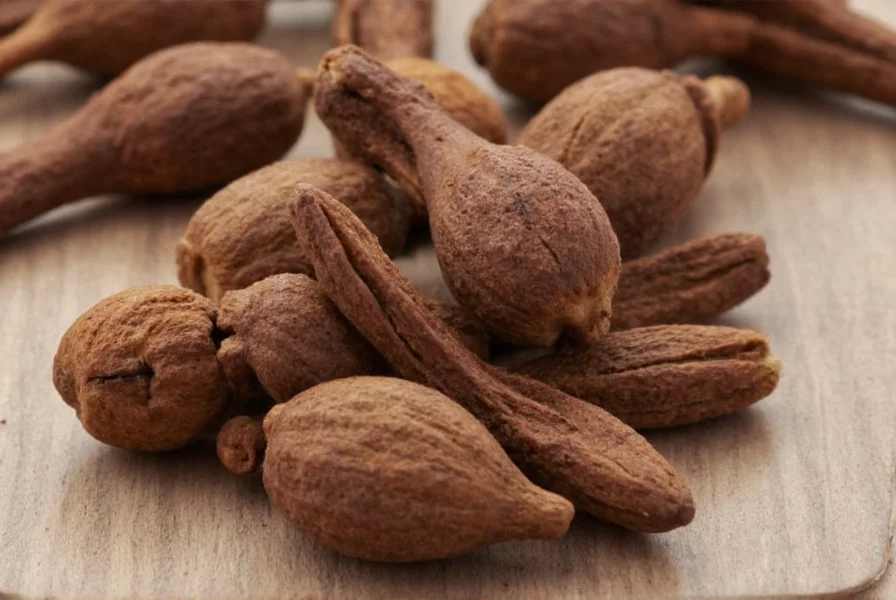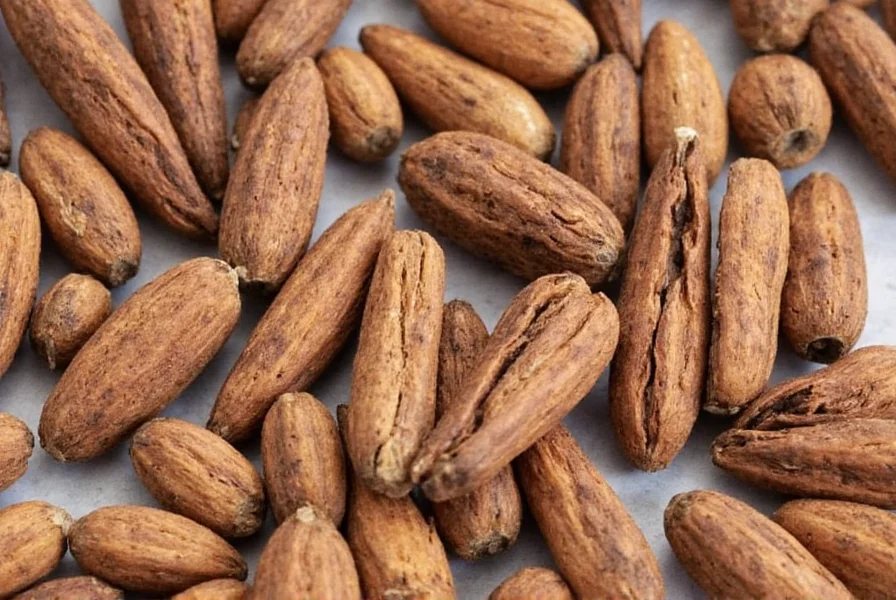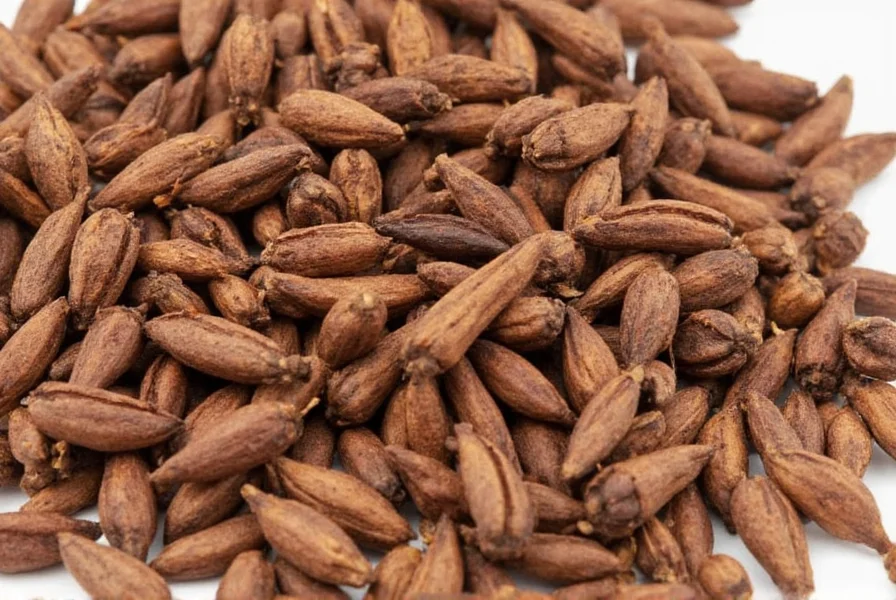Table of Contents
- Introduction
- The Fascinating History of Clove
- Why Cloves Are a Must-Have in Your Spice Cabinet
- Health Benefits of Clove
- How to Use Cloves in the Kitchen
- Buying Guide: Choosing the Best Clove
- Proper Storage for Maximum Flavor
- Fun Facts About Cloves You Probably Didn't Know
- Frequently Asked Questions About Clove
- Conclusion
Introduction
If you've ever bitten into a clove by mistake, you know just how powerful this tiny spice can be. But beneath its intense flavor lies a world of culinary magic and health benefits that have made cloves a staple across cultures for centuries. In this article, we'll dive into the world of clove—its origins, uses, benefits, and tips for buying and using it like a pro.
The Fascinating History of Clove
Cloves come from the dried flower buds of the Syzygium aromaticum tree, native to Indonesia's Maluku Islands—also known as the Spice Islands. For hundreds of years, cloves were so valuable they sparked global exploration and even wars among European powers. Dutch traders once controlled the clove trade so tightly that they burned surplus crops to maintain high prices.
Key Moments in Clove History:
- Used in ancient China as early as 200 BCE for medicinal and culinary purposes.
- Became a symbol of wealth and luxury during the Middle Ages in Europe.
- Spread to Africa, India, and the Caribbean through colonial expansion.
Why Cloves Are a Must-Have in Your Spice Cabinet
You might not reach for cloves every day, but when you do, you'll wonder how you ever cooked without them. With their warm, sweet, and slightly bitter profile, cloves are ideal for both savory and sweet dishes. They're also incredibly versatile—grind them, use whole, infuse oils or stews, or even make homemade spiced drinks.
| Flavor Profile | Best Uses | Pairings |
|---|---|---|
| Earthy, Sweet, Bitter, Intense | Pickles, Roasts, Stews, Desserts, Chai | Cinnamon, Nutmeg, Allspice, Orange Peel |
Health Benefits of Clove
Beyond their culinary charm, cloves are packed with antioxidants and anti-inflammatory compounds. One standout compound is eugenol, which gives cloves their strong aroma and has been studied for its pain-relieving properties—especially in dentistry.
Top Health Benefits of Cloves:
- Antibacterial Properties: May help fight oral bacteria and prevent infections.
- Rich in Antioxidants: Helps protect cells from oxidative damage.
- Digestive Aid: Traditionally used to relieve indigestion and nausea.
- Anti-Inflammatory: May support joint health and reduce inflammation markers.
How to Use Cloves in the Kitchen
Cloves are often underestimated, but when used right, they elevate your cooking. Here are some clever ways to put clove to work in your meals:
5 Practical Tips for Using Cloves in Cooking
- Infuse Flavors in Braises and Stews: Toss whole cloves into slow-cooked dishes for a rich, warm undertone.
- Add to Desserts: Perfect for spiced cookies, pumpkin pies, and mulled wine.
- Use in Pickling: Cloves add complexity and warmth to pickled vegetables.
- Make Homemade Clove Oil: Infuse oil with crushed cloves for natural toothache relief.
- Stud an Orange for Holiday Cheer: Stick whole cloves into oranges for festive air fresheners or potpourri.

Buying Guide: Choosing the Best Clove
Not all cloves are created equal. Whether you buy them whole or ground, there are key differences in quality, origin, and freshness that impact flavor and aroma. Let's break down what to look for when purchasing cloves.
Whole vs. Ground Cloves: What's Better?
| Feature | Whole Cloves | Ground Cloves |
|---|---|---|
| Flavor Retention | Longer shelf life, more potent flavor | Loses potency faster |
| Best Uses | Stews, braises, pickling | Baking, spice blends, rubs |
| Ease of Use | Need grinding or removal after cooking | Ready to sprinkle |
Top 3 Brands for High-Quality Cloves (Non-Branded Descriptions)
- Fair Trade Organic Cloves: Ethically sourced, sustainably grown. Ideal for conscious consumers who want premium quality.
- Locally Sourced Whole Cloves: Freshly harvested and less processed. Great for those who prefer artisanal products.
- Gourmet Blend Ground Clove: Made from fine powder with no fillers. Perfect for baking and holiday recipes.

Proper Storage for Maximum Flavor
To preserve the intense aroma and flavor of your cloves, proper storage is essential. Exposure to light, moisture, and air can quickly degrade their quality.
Storage Tips:
- Keep in airtight containers away from direct sunlight.
- Store whole cloves separately from other spices to avoid odor transfer.
- Grind only as needed to retain potency.
- Freeze unused ground cloves for up to six months.
Fun Facts About Cloves You Probably Didn't Know
- The name "clove" comes from the Latin word clavus, meaning "nail," because of the nail-like shape of the bud.
- Cloves were once worth their weight in gold during the height of the spice trade.
- In Indonesia, cloves are used in cigarettes called "kretek."
- They can act as a natural insect repellent when placed around pantries or drawers.

Frequently Asked Questions About Clove
What exactly is a clove?
A clove refers to the dried flower bud of the Syzygium aromaticum tree, which is native to the Maluku Islands in Indonesia. Cloves have a distinctive nail-like shape and deliver an intense, warm, sweet, and slightly bitter flavor profile that's essential in many spice blends worldwide.
How much clove should I use in recipes?
Cloves have an extremely potent flavor, so a little goes a long way. As a general rule, use 1-2 whole cloves per serving for dishes where they'll be removed before serving. When using ground cloves, start with 1/8 to 1/4 teaspoon per recipe and adjust to taste. Remember that cloves can easily overpower other flavors if used excessively.
Are there any health risks associated with consuming cloves?
While cloves are generally safe when used as a spice in cooking, consuming them in large quantities can cause issues. Eugenol, the main compound in cloves, can cause liver damage in excessive amounts. Clove oil should never be consumed undiluted. People with bleeding disorders should consult their doctor before using clove supplements, as eugenol may slow blood clotting. As with any spice, moderation is key.
Can I substitute cloves if I don't have them?
Yes, but with some flavor differences. Allspice is the closest substitute as it contains some clove-like notes along with cinnamon and nutmeg flavors. For recipes calling for whole cloves, you can use 3/4 teaspoon of allspice for every 1 teaspoon of ground cloves. Cardamom or nutmeg can work in some sweet recipes, but they won't provide the same distinctive clove flavor. For the classic "studded orange" effect, cinnamon sticks can provide visual similarity though the flavor will differ.
Why do some recipes call for whole cloves while others specify ground cloves?
The choice between whole and ground cloves depends on the cooking method and desired flavor distribution. Whole cloves are ideal for long-simmering dishes like stews, braises, and pickling liquids because they release flavor gradually and can be easily removed before serving. Ground cloves work better in baked goods, spice rubs, and dry blends where even distribution is important and there's no need to remove the spice later. Whole cloves also retain their potency much longer than ground cloves.
How can I tell if my cloves have gone bad?
Fresh cloves should have a strong, pleasant aroma and deep brown color. To check freshness, crush a whole clove between your fingers—the aroma should be immediately strong and spicy. If cloves have lost their fragrance or taste bland, they've likely gone stale. Whole cloves typically stay fresh for 3-4 years when properly stored, while ground cloves lose potency after 6-12 months. If cloves develop a musty smell or show signs of moisture, they should be discarded.
Conclusion
Clove may be small in size, but its impact on flavor and wellness is huge. Whether you're simmering a hearty stew, baking a holiday pie, or simply enjoying a cup of spiced chai, cloves deserve a prominent spot in your spice collection. Armed with the right knowledge and techniques, you can unlock the full potential of this timeless spice.
So next time you reach for the cinnamon, don't forget the humble clove—it just might steal the show!










 浙公网安备
33010002000092号
浙公网安备
33010002000092号 浙B2-20120091-4
浙B2-20120091-4